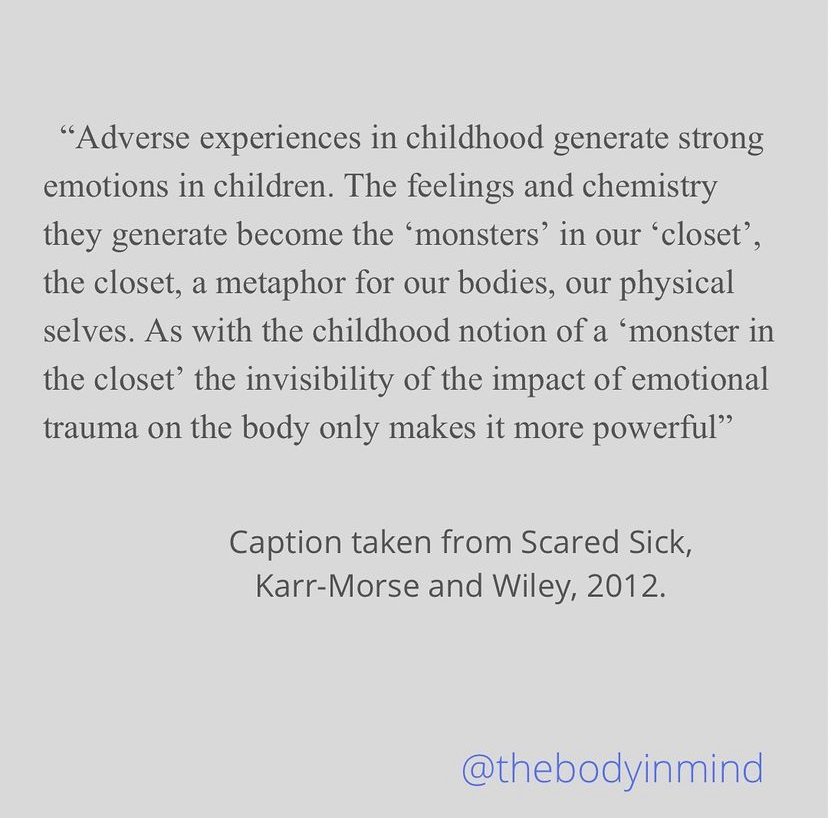Intuition and evidence tell us that our physical and mental health is influenced by a complex interaction between genes, germs, injury, aging and EXPERIENCE but do we fully understand and accept the links between emotions and biology?
While Western science has traditionally emphasised the idea that risk for physical ill health and mental distress comes down to genetics, studies like the Adverse Childhood Experiences (ACE) Study provide enormously important data to expose a much more complicated picture.
At entry to the study, thousands of participants were asked via survey about whether they had been exposed to “adverse experiences” in their early life. Each participant received an ‘ACE’ score, where a higher score reflected greater early adversity.
In the years since, each participant was followed and info collected about general health (both physical and mental) and lifestyle.
The study found a dose-response relationship (as one increases, so does the other) between ACE score and:
1) being diagnosed with a mental health condition
2) presence of physical health conditions including heart disease, cancer, stroke, emphysema, diabetes, liver disease and hepatitis.

Researchers concluded two pathways between early exposure to stress and health outcomes.
1) Sadly people who have had a tougher start in life are more likely to turn to unhealthy ways to cope, and these behaviours (like excessive drug or alcohol use) increase risk to illness.
However, the relationship between adversity and physical Ill health still existed even in the absence of “unhealthy coping behaviours” Researchers also concluded:
2) a direct relationship between early stress and health via disruption to the organisation of the developing nervous, endocrine and immune systems i.e. experience directly affects biology.
So YES, emotions really influence biology. In the same way that positive experience, love, care safety and security are internalised to contribute to the foundations for a healthy and resilient system; adversity, especially when it’s chronic, experienced early in life, or goes unrecognised or unacknowledged, makes a person more vulnerable to poor health.

Leave a Reply